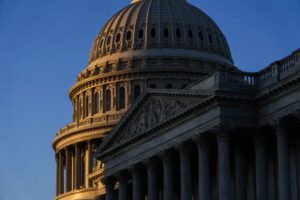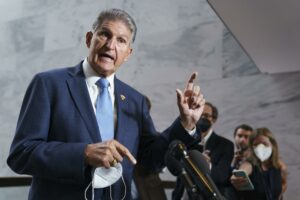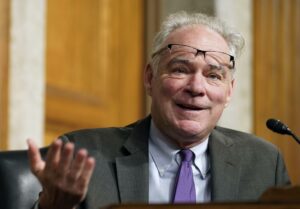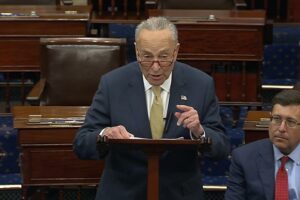Sarah Collins Rudolph lost an eye and still has pieces of glass inside her body from a Ku Klux Klan bombing that killed her sister and three other Black girls at an Alabama church 59 years ago, and she’s still waiting on the state to compensate her for those injuries. Gov. Kay Ivey sidestepped the question of financial compensation two years ago in apologizing to Rudolph for her “untold pain and suffering,” saying legislative involvement was needed. But nothing has been done despite the efforts of attorneys representing Rudolph, leaving unresolved the question of payment even though victims of other attacks, including 9/11, were compensated. Rudolph will meet with President Joe Biden at the White House for a summit about combatting hate-fueled violence on Thursday, the anniversary of the bombing. Rudolph, known as the “Fifth Little Girl” for surviving the infamous attack, which was depicted in Spike Lee’s 1997 documentary “4 Little Girls,” has been rankled by the state’s inaction. Speaking in an interview with The Associated Press on Wednesday, Rudolph said then-Gov. George C. Wallace helped lay the groundwork for the Ku Klux Klan attack on 16th Street Baptist Church with his segregationist rhetoric, and the state bears some responsibility for the bombing, which wasn’t prosecuted for years. “If they hadn’t stirred up all that racist hate that was going on at the time I don’t believe that church would have been bombed,” said Rudolph. Rudolph said she still incurs medical expenses from the explosion, including a $90 bill she gets every few months for work on the prosthetic she wears in place of the right eye that was destroyed by shrapnel on Sept. 15, 1963. Anything would help, but Rudolph believes she’s due millions. Ishan Bhabha, an attorney representing Rudolph, said the state’s apology — made at Rudolph’s request along with a plea for restitution — was only meant as a first step. “She deserves justice in the form of compensation for the grievous injuries, and costs, she has had to bear for almost 60 years,” he said. “We will continue to pursue any available avenues to get Sarah the assistance she needs and deserves.” Five girls were gathered in a downstairs bathroom at 16th Street Baptist Church when a bomb planted by KKK members went off outside, blowing a huge hole in the thick, brick wall. The blast killed Denise McNair, 11, and three 14-year-olds: Carole Robertson, Cynthia Morris, also referred to as Cynthia Wesley, and Addie Mae Collins, who was Rudolph’s sister. Three Klan members convicted of murder in the bombing years later died in prison, and a fourth suspect died without ever being charged. The bombing occurred eight months after Wallace proclaimed “segregation forever” in his inaugural speech and during the time when Birmingham schools were being racially integrated for the first time. The church itself has gotten government money for renovations, as has the surrounding Birmingham Civil Rights National Monument, formed by President Barack Obama in 2017 in one of his last acts in office. “But not me,” Rudolph said. Ivey, at the time of the apology, said in a letter to Rudolph’s lawyer that any possible compensation would require legislative approval, said press secretary Gina Maiola. “Additionally, in attorney-to-attorney conversations that ensued soon after, that same point was reiterated,” she said. No bill








































